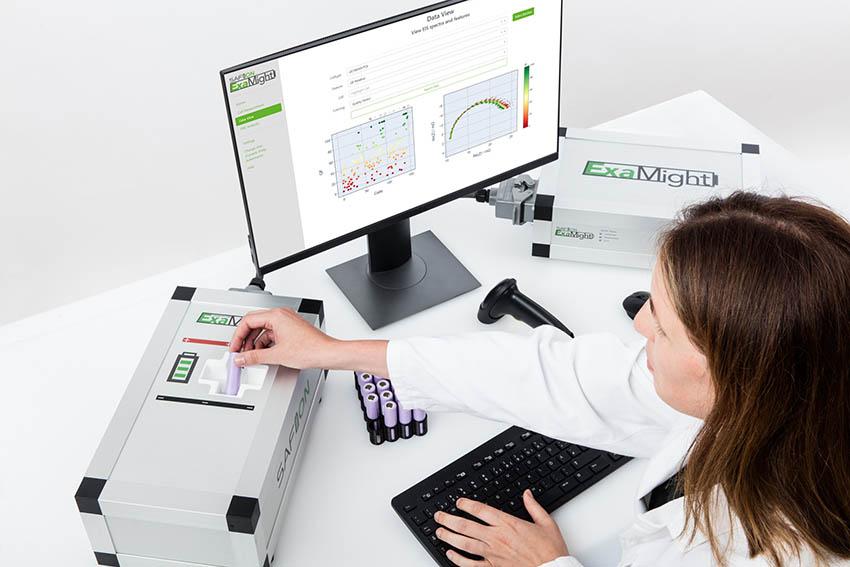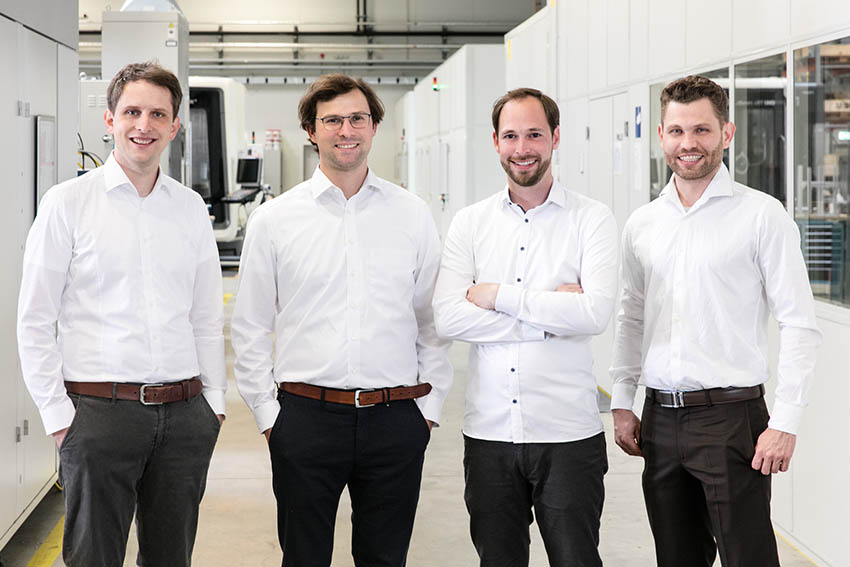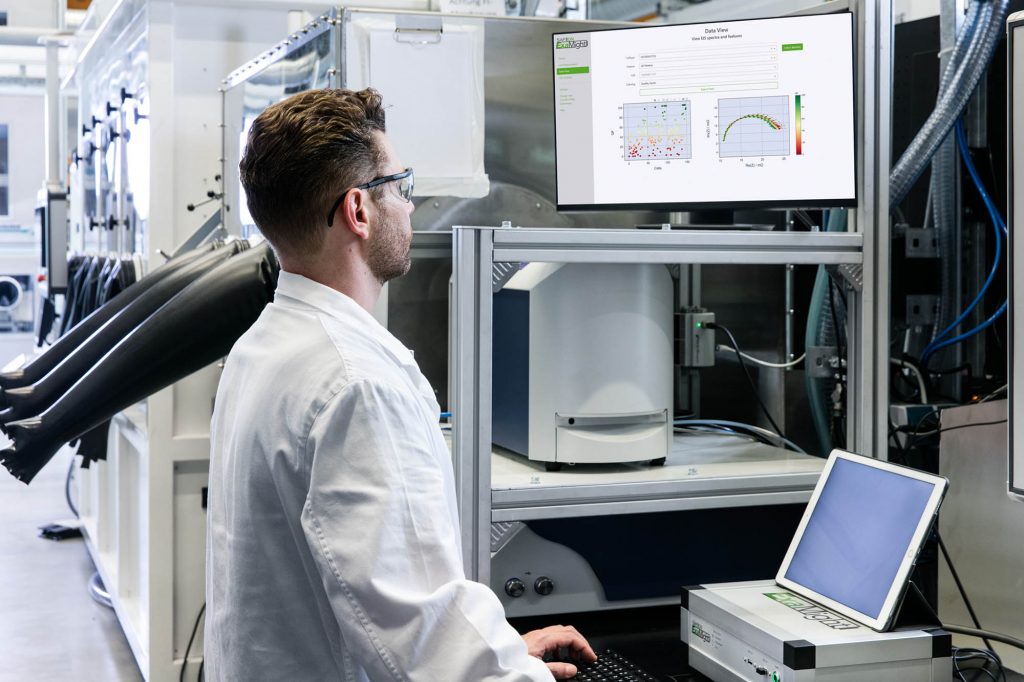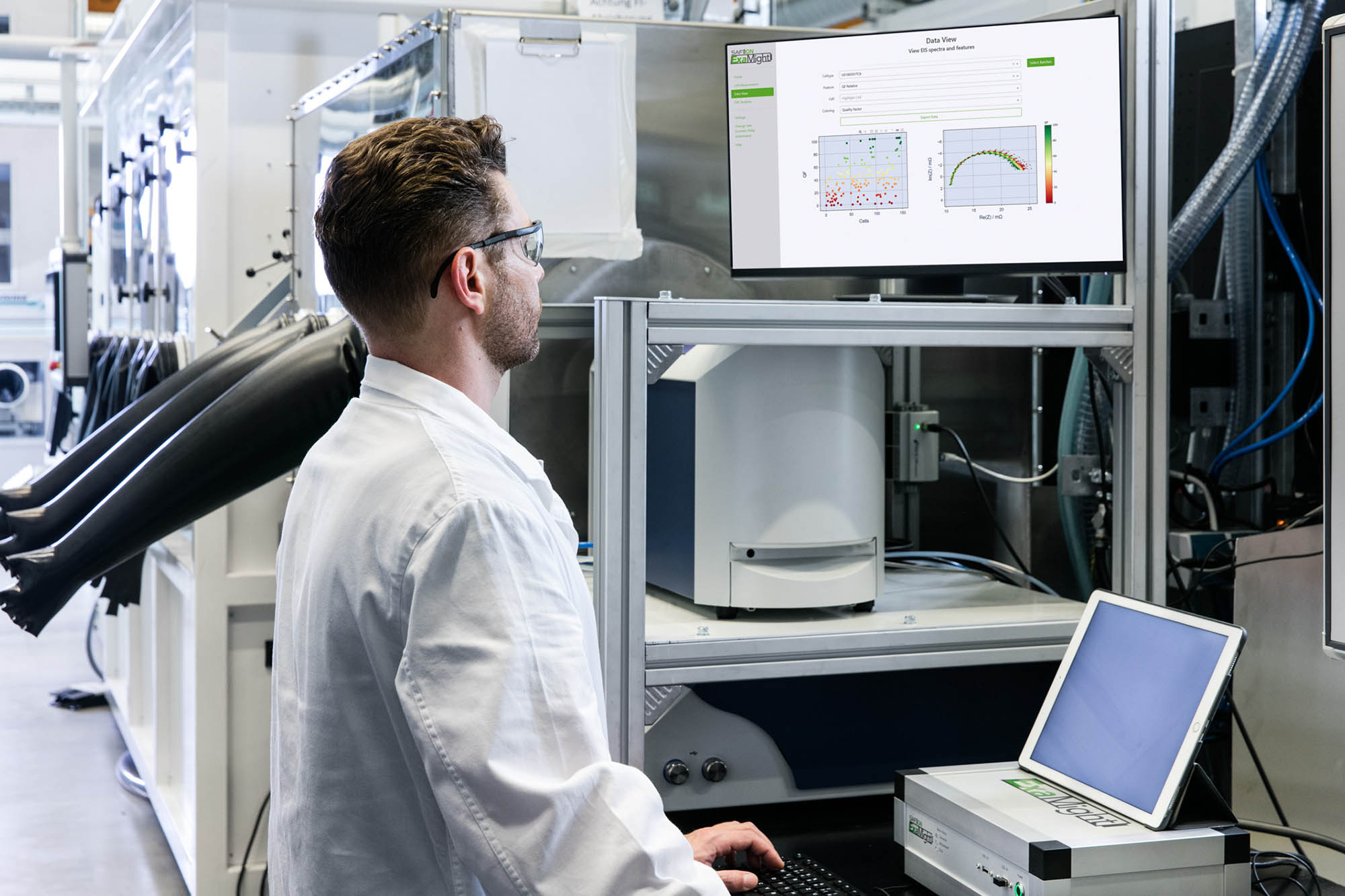Safion is a leading provider for battery quality assessment and diagnosis of prototype and commercial lithium-ion batteries. The company supplies stand-alone and fully integrated production line systems for quality, safety and performance controlling as well as supplier assessment in the fastest, most accurate and most cost-effective way. This enables customers along the whole battery value chain to achieve significant technological performance improvements as well as cost and resource savings.
Safion’s core technology is based on more than 10 years of interdisciplinary research at RWTH Aachen University and combines real-time electrochemical impedance spectroscopy with advanced assessment algorithms.
International Tier-1 and OEM customers in the fields of automotive, aviation and consumer electronics, as well as cell manufacturers and renowned research institutions already rely on Safion’s systems and expertise.
Interview with Tom Gerlach, Marketing Manager at Safion.
Easy Engineering: What are the main areas of activity of the company?
Tom Gerlach: Safion’s activities can be broken down into three main areas: Battery Research & Development, Battery Quality Assurance and Battery Management Systems (BMS).
With our ultra-fast and precise diagnosis technology, we provide our customers with maximum transparency over their battery cells. Our solutions help development laboratories and research institutions identify cell parameters and optimize the thermal and electrical design of battery systems. Cell manufacturers and system integrators (e.g. automotive manufacturers) can quickly assess their cell quality for consistent or improved performance and lifetime of their battery systems. Inside the application (e.g. EV, eVTOL), our technology enables maximum utilization of the battery within its power limits, resulting in extended range and faster charging among other factors.

E.E: What’s the news about new products?
T.G: At the end of 2021, Safion introduced its first accessory for the Inspectrum.C105 EIS meter: The 8-Channel-Multiplexer MUX8. The device has a plug-and-play integration for the Inspectrum series and extends it to 8 measurement channels. MUX8 allows our customers to contact eight cells simultaneously and perform EIS and temperature measurements in sequence with a switching time of less than half a second. This significantly reduces the measurement effort and minimizes the typical error rate during cell contacting.
E.E: What are the ranges of products?
T.G: Aside from individual customer solutions, Safion offers two series of products:
Quality Assurance: ExaMight is a comprehensive modular system for battery screening and quality assessment. With the innovative real-time electrochemical impedance spectroscopy (EIS) process for high-precision and ultrafast cell evaluation, ExaMight can be used for end-of-line testing, incoming cell inspection or second-life qualification.
Research & Development: Inspectrum.C is a lean but powerful EIS meter for battery parametrization and modelling. Its innovative real-time electrochemical impedance spectroscopy (EIS) process for high-precision and ultra-fast cell measurement renders the Inspectrum the perfect solution for battery characterization in research and development facilities.
E.E: At what stage is the market where you are currently active?
T.G: Precise quality assurance is still considered a blank in the battery industry. With a high number of warranty cases and product recalls over the years, manufacturers of battery-powered products increasingly realize the need for ensured consistent cell quality. However, classic battery diagnosis techniques cannot provide reliable assessment in a large scale. Neither cell manufacturers nor system integrators can have the necessary expertise on how their produced or integrated cells differ in performance and lifetime.

E.E: What can you tell us about market trends?
T.G: The battery market shows a high demand for transparency over the quality of cells and innovative solutions for taking over the quality assurance process. A new scientific procedure would be required in order to precisely analyze a single cell and predict how it will perform during the process of aging.
As the number of battery-powered applications grows, so does the number of produced and integrated cells. Therefore, screening time and cost-per-test are gaining more and more significance.
Already it is increasingly difficult to find and employ battery specialists with high scientific expertise. Consequently, the evaluation of measurement data and the management of incoming or outgoing cells is being slowly taken over by intelligent software solutions.
E.E: What are the most innovative products marketed?
T.G: Safion’s real-time EIS measurement technology allows a precise estimation of the performance and lifetime of batteries within seconds. Compared to previous known diagnosis procedures, Safion’s method was able to overcome prior technologies that were not fast or precise enough for the assessment of a high number of cells.
ExaMight is the first all-in-one system for battery quality assurance. The system works as a completely stand-alone setup operated via a software, which high usability and automated workflows require no special user qualifications. It allows to assess any lithium-ion battery in a matter of seconds at – literally – the press of a button.

E.E: What estimations do you have for 2022?
T.G: The keen global interest in our products and the regular exchange with our partners and customers indicated at an early stage that we provide the right technology at the right time. In 2022, Safion will expand as well as upskill staff and establish new international partnerships in order to adapt to the demands of different customer segments. By learning from our customers, we are constantly able to improve our products and add new functionalities.
With Safion’s solutions integrated in more and more facilities, our customers will significantly reduce their costs regarding batteries and enhance their performance, resulting in big development steps towards an electrified future.

